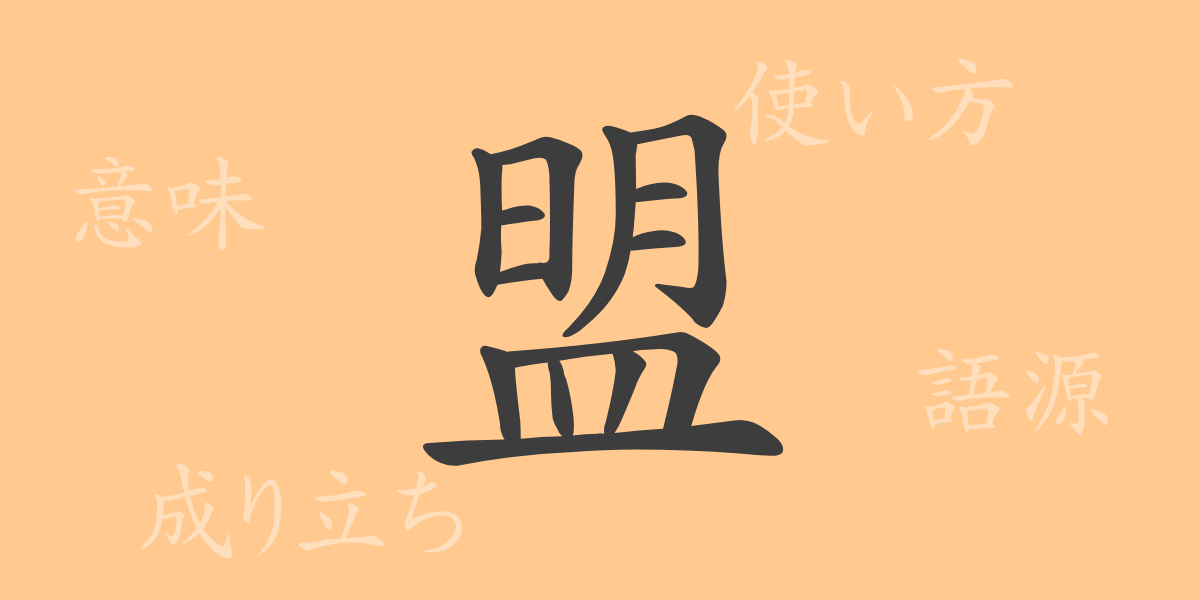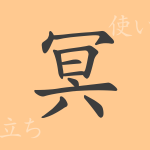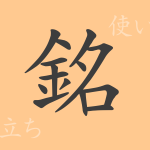Kanji(かんじ) are imbued with meanings and history that can be inferred from their shapes, playing a crucial role in the linguistic culture of Japan. In this article, we will focus on the 常用漢字(じょうようかんじ) “盟(mei)” and delve into its etymology and modern usage. “盟(mei)” is more than just a character; it symbolizes the weight of promises and oaths in social life. Through this article, let’s explore the world of “盟(mei)” and rediscover its charm.
The Origin of 盟(mei) (Etymology)
The origin of the kanji “盟(mei)” dates back to ancient China, where its roots can be traced to oracle bone script. Originally related to the character “明(mei),” which means “bright,” it evolved to mean “to make clear” or “to make public.” In ancient China, the character “盟(mei)” was used during the ritual of swearing an oath before the gods to make the vow clear and public.
The Meaning and Usage of 盟(mei)
“盟(mei)” means “to form a pledge” or “to form an alliance.” It is often used to refer to political alliances or treaties, signifying agreements between nations or organizations. Additionally, “盟(mei)” can be used to represent strong bonds in personal promises or oaths.
Reading, Stroke Count, and Radical of 盟(mei)
“盟(mei)” is a commonly used kanji in Japan, and let’s look at its readings and structure.
- Reading: On’yomi (音読み) is “メイ(mei),” and there is no Kun’yomi (訓読み).
- Stroke count: “盟(mei)” has 13 strokes.
- Radical: The radical is “皿(sara)” (dish).
Words, Idioms, and Proverbs Using 盟(mei) and Their Meanings
There are numerous words, idioms, and proverbs that include “盟(mei),” each carrying deep meanings. Here are some examples:
- “同盟(doumei)”: The act of forming an alliance between parties with common goals or interests.
- “盟約(meiyaku)”: A firm promise, often referring to formal agreements between nations or organizations.
- “誓盟(seimei)”: The act of swearing an oath together, signifying a strong bond.
- “盟主(meishu)”: The leader or dominant party in an alliance.
Summary of 盟(mei)
The kanji “盟(mei)” represents fundamental concepts of promises, oaths, and alliances, as indicated by its shape and history. In Japan, it is frequently used to express political contexts or moral commitments between individuals. Understanding “盟(mei)” leads to a deeper comprehension of the Japanese language. We hope this article helps deepen your understanding of “盟(mei).”

























